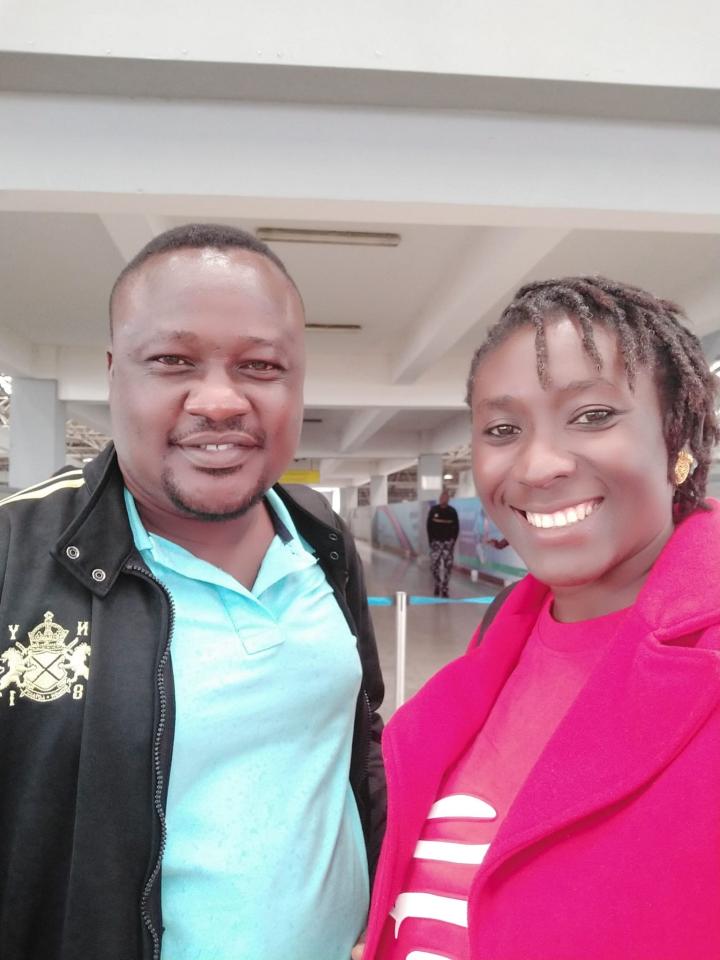Married Peacebuilders Effect Change in Nigeria
March 5, 2024

International Peacemaking Program (IPP) alum James Danladi ‘20 and MA in International Peacebuilding (MAP) student Shekhe Danladi met in their teens when Shekhe’s family moved to Nasarawa, escaping from interreligious violence in another state of Northern Nigeria. Their interests in fostering peace and care for others quickly united them, and both are making their peacebuilding dreams a reality. “He is very creative, and I’m very hands-on,” Shekhe says.
Together, they have 11 children. Seven of them were adopted by the couple each time James went to help the victims of several violent outbreaks.
Upon graduating from our IPP during the pandemic year of 2020, James has been involved in several interfaith initiatives in Nigeria. In 2022, he founded an interreligious NGO for children called the Lighthouse Child Development Centre. This organization is the first to focus on positively reorienting children who grow up in the midst of Nigeria’s Christian-Muslim violence.
An ordained minister with the Baptist Church Kawo church, James recently organized a free breakfast in the predominantly Muslim community of Hayin Banki, where the church is located, fostering interfaith harmony. They invited people in the community, regardless of their tribe or religion. The intention was to demonstrate love to the community, fight hunger, and set an example of caring for others – emulating what Jesus did in ministering to the people.
Last December, James also organized an interfaith Christmas that all the Kaduna news stations covered. Organizing an Interfaith Christmas might not appear to be a significant achievement, but Kaduna is an epicenter of interreligious violence in Nigeria, a place that is highly segregated by religion. Organizing these interfaith initiatives is genuinely dangerous because the forces dividing people are so strong.
In 2021, Shekhe and James founded River Front School for kids ages 3 to 14, which already stands out among others with its unique approach to education — kids learn while playing. Shekhe, a teacher at the school, says parents tell her their kids feel at home there. Teachers at the school let their kids know that they are loved and that it is okay to make mistakes. Shekhe has always believed that education wasn’t just about imparting knowledge but also about fostering understanding and empathy.
Teaching Sunday school at Center Church in Hartford is part of her fieldwork for the MAP program, and it has been revealing. In the beginning, some children were not as engaged as she wished. Some would approach her and tell her they didn’t want to do anything that morning.
Resourcing what she’d learned so far in the MAP program, she implemented restorative practices in her class. These practices structured the teaching process so kids can regulate, relate, and then reason. She also applied the circle process during her lessons, which structures dialogue among a group of students where kids know exactly when it's their turn to speak and when to listen.
“During one of the processes, one of the children actually leaned on my hand to listen,” Shekhe said. “The second time, I tried teaching the same way. After the lesson, a child said they had a really nice time in class.” Once she saw the positive response from her students, she was sure what her capstone project would be: a peacebuilding curriculum to bring back to her school in Nigeria.
Kids at River Front Schools are of diverse beliefs, and some have troubled backgrounds as they are survivors of interreligious violence. The new curriculum will bring change with it. “We can have children who are better informed on how to handle conflict,” Shekhe says. The kids will also know that a structure is in place to understand them better.
The peacebuilding aspect of the curriculum will include non-violent, mindful communication to teach kids how to create a peaceful environment and how to regulate themselves and de-escalate tension when they are provoked. Staff will also be trained in peacebuilding skills.
Shekhe is eager to apply the curriculum she is developing. “I am really excited. We're kind of already doing the hands-on play-based and project-based learning, but now I’m bringing the structure.”
Growing up, Shekhe saw her parents always willing to lend a hand to those who suffered loss due to violence, accommodating and feeding them. Witnessing love and kindness amid chaos fed her willingness to help.
James and Shekhe Danladi are agents of change, and one of their driving forces is their children. “I say whatever I can do just to make sure they don't grow up with the same fears or the same concerns or uncertainty that I might have experienced,” Shekhe says.
And James adds, “I have children, many children under me, children with terrifying stories of how religious disunity has caused them unforgettable pains … I love them, I think of their well-being and how best I can be the best father to them all."
Join our mailing list
Keep up with all the latest happenings at Hartford International.

